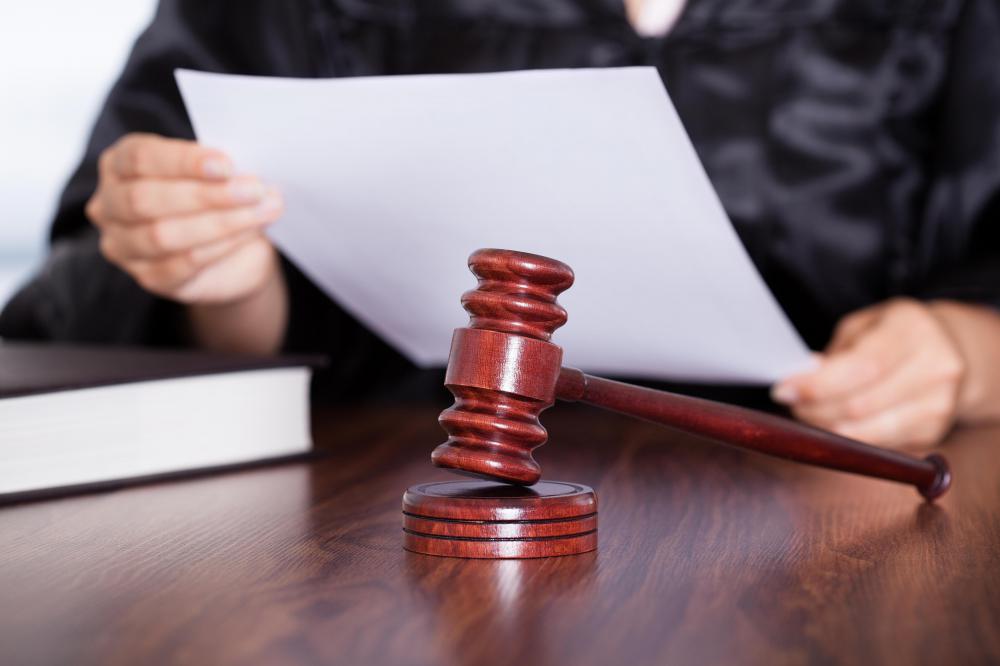At WiseGEEK, we're committed to delivering accurate, trustworthy information. Our expert-authored content is rigorously fact-checked and sourced from credible authorities. Discover how we uphold the highest standards in providing you with reliable knowledge.
What Is a Criminal Trial?
A criminal trial is a legal procedure in which a legal team tries to provide enough evidence to convict an accused person of a crime. During a trial, a public official, often referred to as a prosecutor, interviews witnesses and submits evidence against an accused person. The accused will then typically have a chance to try to prove his innocence. After each side has presented its case, a judge or jury will decide whether the accused is guilty or innocent.
In most countries, when a person is accused of a crime, he has a chance to plead either guilty or not guilty. Many accused individuals often plead guilty or make a deal with prosecutors. In most democratic countries, an accused individual must go through a criminal trial. To help prove his innocence, an accused individual will often has the right to have legal representation.

In many countries, an accused individual is allowed to choose whether he wants a judge or jury to decide his guilt or innocence. If he is tried in front of a judge, just one man has to make this decision. When he is tried in front of a judge and jury, a group of peers must make a unanimous decision as to whether he is guilty or innocent. The members of a jury are typically chosen before the start of a criminal trial, and they will sit and watch the entire trial.

At the beginning of a criminal trial, the prosecutors will begin by giving an opening statement. During this statement, the prosecutors will tell the judge or jury how they hope to prove that the accused is guilty of the crime. The accused, or his lawyers, will also give an opening statement, but they will state how they hope to prove that he is innocent.
The prosecution will then present its case and try to prove that the accused is guilty. This is done by showing evidence, such as DNA, to the jury. Prosecutors will also interview witnesses during a criminal trial to help make their case.

After the prosecution is done interviewing each witness during a criminal trial, the accused will then be able to interview them as well. This is often known as a cross-examination. When the prosecutors have interviewed all of their witnesses, the defense is then allowed to present their own evidence and interview their own witnesses. After each defense witness has been interviewed, the prosecutors are also allowed to cross-examine them.

Closing statements are then made by each side after all evidence has been submitted and all witnesses have been interviewed. Each side will outline its case, and go over key points they want the judge or jury to remember. The judge or jury will then leave to decide whether the accused is guilty or innocent.
In most countries, such as in the United States, a judge or jury must believe that the accused is guilty “beyond a reasonable doubt.” This means that there can be no doubt in the judge's or any member of the jury's mind that the accused may be innocent. If a jury is making this decision, it must be unanimous.

If it is found that the accused individual is not guilty of a crime, he is typically free to go after a criminal trial. On the other hand, if he is found to be guilty, then he is then sentenced by the judge. This sentence may take place immediately following the trial, or it may be postponed until a later date.
AS FEATURED ON:
AS FEATURED ON:
















Discuss this Article
Post your comments